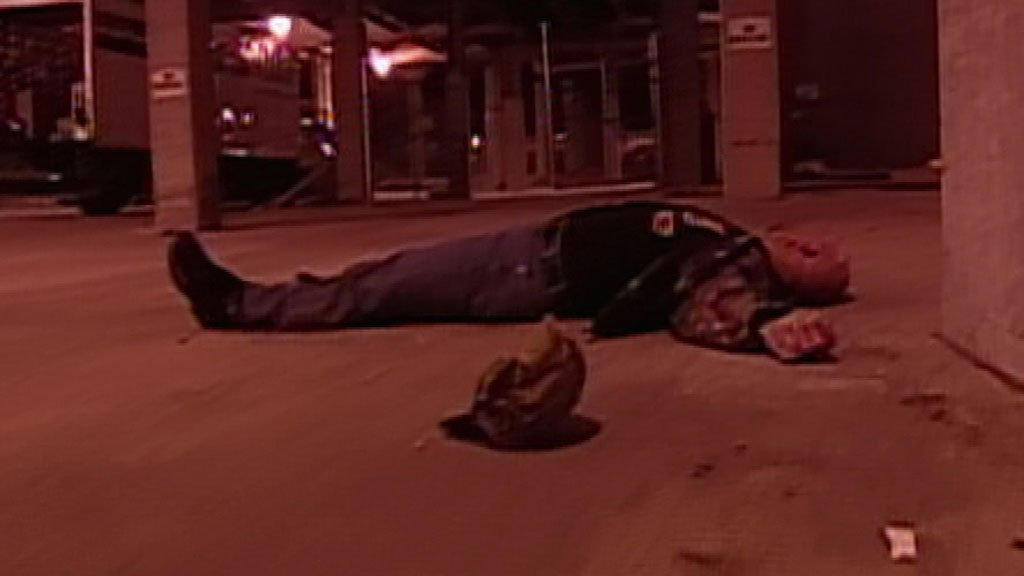Jey Uso's Heartbreaking Reveal: Recalling Childhood Bullying and Its Lasting Impact
Editor’s Note: Jey Uso has bravely shared a deeply personal story about his childhood experience with bullying. This article delves into his account, exploring the lasting effects and offering insights into the importance of addressing bullying.
Why This Matters: The Ripple Effect of Childhood Bullying
Jey Uso's recent revelation about facing bullying as a child is more than just a personal story; it's a powerful testament to the lasting impact of childhood trauma and a crucial reminder of the urgent need to combat bullying in all its forms. This article will examine the following key points:
- The pervasive nature of childhood bullying and its often-hidden consequences.
- The importance of open dialogue surrounding bullying to foster support and understanding.
- The long-term psychological and emotional effects bullying can have on victims.
- How we can create safer and more supportive environments for children.
- Jey Uso's inspiring message of resilience and hope.
Key Takeaways
| Point | Insight |
|---|---|
| Bullying's Long-Term Impact | Can lead to anxiety, depression, and low self-esteem in adulthood. |
| Open Communication | Crucial for victims to seek help and support, and for prevention efforts. |
| Creating Safe Environments | Requires collective effort from parents, educators, and community members. |
| Resilience and Healing | Recovery is possible, and seeking support is a sign of strength, not weakness. |
Jey Uso's Childhood Bullying Experience
Jey Uso's recent interview revealed a painful chapter of his childhood, where he endured significant bullying. While specifics haven't been fully detailed out of respect for his privacy, the emotional weight of his account is undeniable. He highlighted the isolation, the emotional scars, and the lasting impact it had on his self-perception. This experience, though painful, serves as a powerful reminder of the insidious nature of bullying and its often-unseen consequences. His story underscores the need for empathy and understanding, both for those currently experiencing bullying and for those navigating the aftermath.
The Impact of Bullying: A Deeper Dive
The effects of childhood bullying can be far-reaching and profoundly impact an individual's life. Victims may experience:
- Low self-esteem: Constant negativity and isolation can lead to a diminished sense of self-worth.
- Anxiety and depression: The trauma of bullying can manifest as persistent anxiety and depression, affecting daily life.
- Social isolation: Fear and shame can make it difficult for victims to connect with peers.
- Physical health problems: The stress associated with bullying can contribute to various physical health issues.
Overcoming Adversity: Jey Uso's Strength
Jey Uso's story is not just about pain; it’s also about resilience. His openness in sharing his experience speaks volumes about his strength and willingness to use his platform to raise awareness. His journey underscores the importance of support systems and the possibility of healing and recovery.
The Importance of Open Dialogue About Bullying
Open conversations about bullying are essential for several reasons:
- Breaking the silence: Many victims suffer in silence, fearing shame or judgment. Open communication encourages them to seek help.
- Raising awareness: Public discussions help educate others about the severity of bullying and its consequences.
- Promoting empathy: Understanding the impact of bullying fosters empathy and compassion.
- Preventing future incidents: Open dialogue can help identify and address the root causes of bullying.
Practical Tips for Preventing and Addressing Bullying
- Educate children about bullying: Teach them about different forms of bullying and its impact.
- Encourage reporting: Create a safe space where children feel comfortable reporting incidents.
- Foster empathy and compassion: Teach children the importance of kindness and respect.
- Promote positive peer relationships: Encourage children to build strong, supportive relationships.
- Involve parents and educators: Work collaboratively to create a school environment free from bullying.
- Seek professional help: If bullying persists, seek professional guidance from counselors or therapists.
- Utilize anti-bullying programs: Participate in and support anti-bullying initiatives in schools and communities.
- Lead by example: Adults should model positive behavior and speak out against bullying.
"Bullying is a serious issue that affects many children, and it’s important to remember that every child deserves to feel safe and supported," says Dr. [Name of Expert], a child psychologist.
Summary
Jey Uso's courageous disclosure shines a light on the lasting impact of childhood bullying. His story highlights the need for open dialogue, preventative measures, and support for victims. By understanding and addressing this pervasive issue, we can create safer and more compassionate communities for children.
People Also Ask (FAQs)
Q1: What is childhood bullying?
A: Childhood bullying involves repeated acts of aggression, intimidation, or harassment directed at a child by another child or group of children.
Q2: Why is it important to address childhood bullying?
A: Addressing childhood bullying is crucial because it can have devastating long-term effects on victims' mental and physical health, affecting their self-esteem, relationships, and overall well-being.
Q3: How can I help a child who is being bullied?
A: Listen empathetically, encourage reporting, and seek support from school officials or counselors. Ensure the child knows they are not alone and that help is available.
Q4: What are some common signs of bullying?
A: Unexplained injuries, changes in behavior (withdrawal, anxiety), reluctance to go to school, and possession of fewer belongings.
Q5: How can I get involved in anti-bullying initiatives?
A: Volunteer at your local school, support anti-bullying organizations, and advocate for policies that prevent and address bullying.
Closing Message
Jey Uso's story is a powerful reminder that the wounds of childhood bullying can run deep. Let his courage inspire us to act, to create a world where all children feel safe, respected, and valued. Share this article to spread awareness and help prevent bullying.
Call to Action
Learn more about anti-bullying resources and support groups by visiting [link to relevant resource]. Share this important article on social media using #EndBullying #JeyUso #ChildhoodTrauma #Resilience.

